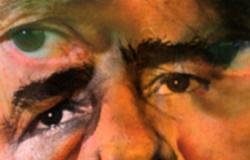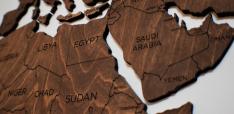The announcement of Fidel Castro's serious intestinal illness at the end of July 2006, and the occasion of the Cuban leader's 80th birthday on 13 August, inevitably have raised a mountain of commentary about the imminence or otherwise of a transition of power in the Caribbean communist state. But if "what comes after Fidel" is a well-worn topic of op-eds and broadcast interviews, the focus of the answer is less often where it should be: on an assessment of the character – a combination of the institutional, political, and personal – of the Cuban revolutionary experience as a whole.
To approach the question in this way is also to recall the three informative encounters I have had with Cuban realities in visits to the island in 1968, 1981, and 2000. The third occasion offered most insight into where Cuba after Fidel may go, but the second also provided an illuminating sense of how elements of the Cuban political elite make sense of their place in the international environment – and of their leader.
A time of mistrust
The first occasion I visited Cuba was in 1968, when with the Bertrand Russell Foundation I helped organise a one-month, not-very-strenuous working visit by a few dozen British radicals on a coffee plantation in Pinar del Rio province. The project included a tour of the island, and the experience of witnessing two characteristically marathon speeches by Fidel.
The second visit was in 1981, when I was invited by the foreign ministry in Havana for discussions on the situation in the middle east in the context of the then fairly new Israeli threat to Lebanon, which the Cubans saw through the prism of a possible attack on their close allies Syria and (closer to home) the Sandinistas in Nicaragua.
During the 1980s, I had further numerous discussions with Cuban diplomats in Europe on issues of concern to them: in the early part of the decade the threat of an American invasion of Nicaragua (and even Cuba itself) dominated their thoughts, but from the mid-1980s onwards the focus shifted to Mikhail Gorbachev's project in the Soviet Union and the gathering gulf between Havana and Moscow.
In effect, therefore, the early 1980s were dominated by concern about the yanquis, the late 1980s by concern about what the Cubans always termed, with some irony and frustration, los hermanos (the brothers). The Cubans spotted very early on that something was changing for the worse in the USSR and were not slow to express a view on it. As the years of Gorbachev's glasnost and perestroika gave way to the fall of the Berlin wall and the wave of revolution in east-central Europe, Cubans were particularly interested in (and it seemed alarmed by) the uprising against Nicolae Ceausescu in Romania in December 1989, which they saw as a KGB-inspired military coup that could be a dry run for Cuba.
This mistrust was evidently reciprocated. Soviet officials I met during those same years in Moscow seemed still anxious about the Cuban propensity for "adventurism" in domestic and international matters. There was graphic evidence of this mutual suspicion in the huge tower of the purpose-built Soviet embassy building down the road from Havana's Institute for International Relations (IRI) in the suburb of Miramar. Cubans joked that while the Soviets justified the building in terms of its function as a source of electronic surveillance of the United States, its real purpose was to invigilate them.
The IRI, the academic institute attached to Cuba's foreign ministry, was at the centre of my third visit to Cuba in 2000. There I lectured to diplomats and policy specialists on international relations, and had occasion to consult more closely with some senior staff. It was an impressive group: witnesses of four decades of revolutionary upheaval and international drama, familiar with the leaders and inner workings of the Cuban state, well read and well travelled, committed to the broad aims of the Cuban revolution, sceptical of much of what passed for Marxist or radical writing in the west, and devoid of the kind of rhetorical posturing that so often characterises officials of such regimes.
The conversation ranged over the fate of "third-world" revolutionary regimes, the possible evolution of United States domestic politics, the impact on Cuba of the post-1991 period of economic hardship (as a result of the ending of Soviet economic support) known as the "special period". There was by then already a sense of the end of a phase in Cuban history, as the revolutionary advances of the previous two decades abroad had disappeared (Angola, Nicaragua) and as Cubans domestically were more and more preoccupied with making ends meet, working in multiple jobs or relying on dollar remittances from relatives in the US.
The occasional roaring of passing camelos ("camels", the improvised mass-transport system based on converted lorries) underlined this crisis. Tourism was doing OK, but there was much corruption in the system associated with it, and it involved regulations – such as the denial of access to Cubans themselves to certain beaches and hotels – that my interlocutors found especially insulting. Much was blamed on the continued US blockade, though not all – hence the joke about a mid-air collision in which a plane carrying Fidel Castro hits one carrying the president of the United States. "Who escapes? 11 million Cubans".
A Cuban dialogue
Despite this background of a certain familiarity and a degree of realism about the Cuban revolution, I was surprised in the course of the evening – as the discussion inevitably turned to the issue of what would happen after the death of el comandante – when my companions expressed considerable respect for the figure of Francisco Franco, the victor of Spain's civil war and dictatorial ruler until his death in November 1975.
The reason for this admiration was not any hankering after fascism, rightwing authoritarianism or the supremacy of the Catholic church in national life; it was based on the belief that General Franco had prepared the foundations for a democratic transition after his death. Franco's famously enigmatic saying todo es atado, bien atado ("everything has been tied up, well tied up") was seen by my Cuban colleagues as an indication that Franco had – through the opening of Spain to European capitalism, and the installation of Juan Carlos as the leading figure in overseeing the post-Franco era – foreseen and made provision for the transition of Spain to democracy in the late 1970s.
The point was not just a fascinating contrast with the hard-right Spanish political figure for whom Fidel Castro himself has long expressed affection, namely Franco's long-standing ministerial colleague (and Fidel's fellow gallego), Manuel Fraga. It was, rather, that these IRI officials were really making a point not about Franco at all, but about Castro.
They all knew Fidel, admired him and sympathised with his defence of radical and Cuban nationalist goals. But they were deeply concerned at how, over the years, he had retreated more and more into isolation, surrounding himself with young acolytes from the Juventud Comunista (the communist youth organisation) who told him what he wanted to hear – that Cuba was the most admirable country in the world, that the anti-globalisation movement was gaining ground across the world, that imperialism was in crisis.
In the early years of the revolution, some of its ablest leaders and thinkers had left its embrace (among them the guerrilla commander Huber Matos and the writer Carlos Franqui); others once close to Fidel who had been able to speak the truth to him had passed away (including Carlos Rafael Rodríguez, the ablest of the Communist Party leaders; Osvaldo Dorticos, the long-time president; and, not least, Celia Sanchez Manduley, Fidel's companion of many years, at whose graveside he had exhibited profound distress). The advent of a new generation of admirers and sycophants from Latin America, with Hugo Chávez in the lead, had done little to instil a late realism into Castro's worldview.
On only one issue were my interlocutors uneasy, even as they upbraided me for what I had written in a recent comparative study of "third-world" revolutions. This concerned one of the most contemptible episodes in the history of the Cuban revolution, the "Ochoa affair" of 1987, involving a group of senior military officials associated with the Cuban war in Angola. It appeared that Fidel and his associates had staged a show-trial of popular radical figures that might have challenged his authority. In the worst tradition of communist trials of this kind, the defendants had been tricked into making professions of loyalty and self-implication with the hope of leniency, only to find themselves either shot or sentenced to thirty-year imprisonment.
Yo, el supremo
This introversion and protracted entropy of the Cuban revolution in the 1990s is not, however, some sudden break with an earlier, utopian, phase. It points, rather, to problems in the whole history of the revolution itself – problems which astute even if sympathetic observers noted in the early 1960s but which supporters of the Cuban state (quick to suspend judgment or see the reality of life on the island as it is and has long been) seek to avoid. The most evident is the personality of the leader himself: a man of vision, courage, honesty and charisma, but also of demagogy, inconsistency, episodic vindictiveness and cruelty, grotesque verbal self-indulgence, intolerance, contempt for intellectuals and homosexuals, and plain administrative ineptness.
Cubans have long known that in Cuba the solution is also the problem, and that it lies at the top. What the besotted visitors Jean-Paul Sartre and Simone de Beauvoir saw in 1960 – "the dialectical unity of Fidel and the masses", a crazed rush of statements, changes of course, arbitrary interventions – soon became a mixture of inefficiency, arbitrariness and whim.
Such personal failings – ones that history, far from "absolving" in his famous phrase at his 1953 trial, only made worse – have been compounded by the choices he and his associates made in regard to the administration of the Cuban economy.
Many observers rightly point out that Cuba has had an exceptional record in the field of social services – health, education, poverty reduction. But its overall macroeconomic record has been dismal, and this is a result not just of the US blockade (as the regime's friends and apologists so easily claim) but of a series of disastrous policies. These range from the utopian experiments with "non-monetary accounting" (a fantasy of Che Guevara's) and "voluntary labour" (a form of highly inefficient forced mobilisation) to the reimposition of state controls and the crushing of small markets and farmers in the ill-conceived "rectification" campaign of the 1980s.
The latest catastrophic switch came in 2003, when the regime drastically reduced the circulation of US dollars in the economy and antagonised foreign investors with a new set of controls. Today, even after some recovery from the special period, per capita annual income in Cuba is estimated at $3,000. Pensioners receive $7 a month, and can often afford meat only twice a month.
A climate of fear
These defects of personality and policy have been accompanied by something else that visitors to the island, bemused by its superficially easy-going and "tropical" atmosphere, too easily miss: namely, a climate of fear.
Cuba's record is not the most bloody among modern revolutions – though it is important not to forget the revolutionary show-trials of the early 1960s, over which Che Guevara presided and which so disgusted his father that the latter left the country; and the mass imprisonment of dissidents, gays and others in the "‘re-education" camps of the 1970s and 1980s. In any case, these are only the most visible evidence of the tight restrictions on free expression, let alone free organisation, in Cuba.
The political system, for all its vaunting of "people's power", is tightly controlled from the top. Those writers and other intellectuals who have over the years offered even friendly critiques have too often become the object of official persecution and slanderous denunciation (the group of Cubans associated with the Institute of the Americas, whose permission to travel and publish was abruptly withdrawn when they began to write about democracy, is but one example). The scorn has also been poured on external observers such as the French agronomist René Dumont, the Polish-French Marxist writer KS Karol, and the American historian Oscar Lewis.
Such persecutions, and the attitudes that go with them, are not just a result of the inevitable growth of dictatorship after revolutions, or of imperialist pressure from outside. They also stem from Castro himself. His great hero is, it would seem, the Jacobin leader Robespierre, a biography of whom was published some years ago in Cuba: austere, cruel, at times fickle, and, ultimately, a victim of the very revolution he sought to lead.
This character trait is evident most of all in the inability of the Cuban leader to follow the model that Cuban officialdom professes to admire: China. The Chinese leadership has since 1978 understood that its people want to make money and have a better life. Castro has made some recent moves in this direction, and has been aided by the financial support of Hugo Chávez in alleviating the lot of the Cuban people. But he remains the prisoner of a moralistic hostility to material wealth and improvement, and resorts time and again to appeals for greater moral purity and the ridding of Cuba of corrupt, consumerist, values. For all that Castro proclaims himself to be in the tradition of the 19th-century nationalist leader José Marti, he ignores Marti's view that a country of small property-owners is a rich one.
Hence, perhaps, the mid-1990s Cuban anecdote about Fidel Castro finding himself in a cage with Bill Clinton and Boris Yeltsin, where they are all being threatened by a ravenous lion. Clinton and Yeltsin bravely tussle with the beast, but retire seriously mauled. Fidel tells them to leave it to him. He approaches the lion and whispers something in its ear: the animal pauses, frowns, and rolls over dead. Bill and Boris take a break from licking their wounds to query comandante about the magic words. Fidel replies: "well, I said what I always say – Socialismo o Muerte" ("socialism or death").
Every joke, pace George Orwell, tells a tiny truth as well as being a tiny revolution. Most Cubans are respectful of Castro as a leader and proud of their national independence, but they are fed up with their economic, social and political system and want a change – the sooner the better.
True, there is also widespread anxiety in the island about the possibility of violence (either between factions on the island itself, or between exiles returning from Miami and the forces of the Cuban state) after Castro's death. The ideal – notwithstanding scenarios long nurtured in Miami and Washington about the regime's imminent fall – is of a peaceful transition to democracy which preserves both the independence of the island and the social gains of its revolution. As in East Germany and east-central Europe of the 1990s, this may be an illusion.
If things do go badly and get out of hand, part of the blame will lie with venomous and ill-informed exile politicians in Miami and New Jersey, and with the crass and ignorant complicity with them of successive US presidents. But some too will lie with Fidel Castro and those around him for having so long prevented political change in the island, mismanaged its economy, and driven so many of its citizens into exile. Much of what is wrong with Cuba is the result not of imperialist mischief, but of post-revolutionary dogmatism, stupidity and arrogance.
Francisco Franco's true intentions for Spain after his death are a matter that may never be resolved. The one person who might give an authoritative answer, King Juan Carlos, will probably never do so. A few months ago, after giving a public lecture on Cuba at Barcelona University's history department in which I mentioned the story of my Havana encounter with Franco's fan-club, I was approached by a student in his 20s who said that his father had been the CIA station chief in Madrid in the Franco regime's twilight years and knew the old dictator well. Franco, the young man assured me with the authority of his father, had no wish to see democracy being introduced into Spain; the general's todo es atado, bien atado meant only to indicate that the authoritarian regime he founded would continue.
My Cuban interlocutors were, it seemed, mistaken in their view of the Spanish dictator. But democracy, after all, did come to Spain; so the Barcelona version, if true, may nonetheless contain a grain of hope for Cubans after their authoritarian leader of (currently) forty-six years finally departs the scene.



